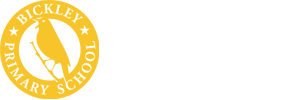- Home
- About Us
- Curriculum
Curriculum
At Bickley, the curriculum is designed to enable children to develop the skills and gain the knowledge and understanding needed to become enthusiastic and successful learners.
The curriculum is broad and balanced and includes the following subjects:
- Art and Design Technology (DT)
- Computing
- English
- Geography
- History
- Mathematics
- Modern Foreign Languages (MFL)
- Music
- Physical Education (PE)
- Personal, Social, Health and Economic Education (PSHE)
- Well-Being
- Religious Education (RE)
- Science
Thinking Schools
Bickley Primary School is a Thinking School. This is to enable children to become more active participants in their learning with the ultimate goal of becoming more independent and resilient.
We believe that the best way to transform life chances is to actively shape the minds, attitudes and habits of young people through a framework of cognitive education that enables them to become the master of their own destinies.
“We are what we habitually do” - Aristotle; to transform life chances we have to transform habits.
The ultimate goal is that every individual, child or adult, in the organisation consciously recognises their own habits, strengths and areas for development and actively seeks to improve themselves, thereby creating transformational change in each individual. (The Thinking Schools Trust)
To thrive in the 21st century and beyond will require us all to be able to adapt and to do so quickly. We will all need a ‘tool kit’ of learning strategies to make fast improvements. To choose the right tool we will need to be able to reflect on what’s working for us and what isn’t. This metacognitive skill is crucial for future-proofing students beyond the school gates. It also has significant benefits for attainment, behaviour and well-being in the classroom.
Please have a look at this video about some of the different Thinking Matters approaches being used in our school.
Staff work hard at Bickley to make sure that the curriculum:
- Is engaging, fun and interesting
- Is relevant for children growing up in the 2020s and beyond
- Develops key learning skills (see below)
- Challenges thinking and promote questions
- Includes real and purposeful contexts for learning
- Gives children opportunities to follow their own lines of enquiry
The curriculum is underpinned by opportunities to develop the key learning skills of:
- Resilience
- Curiosity
- Collaboration and communication
- Reflection
- Creativity and imagination
- The ability to take safe risks
Outdoor Learning and Caring for the Environment - both at school, locally and globally - are key features of every topic, and we have developed a team of school Eco Warriors to lead on this.
Early Years Curriculum
Key Stage 1 Curriculum
Key Stage 2 Curriculum
Maths Curriculum
Year 1 Teaching OverviewYear 2 Teaching OverviewYear 3 Teaching OverviewYear 4 Teaching OverviewYear 5 Teaching OverviewYear 6 Teaching Overview


